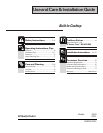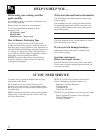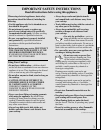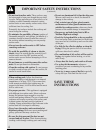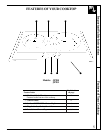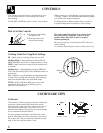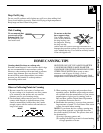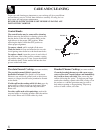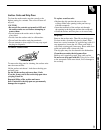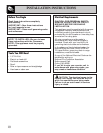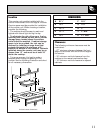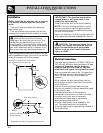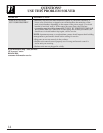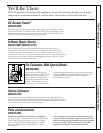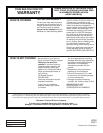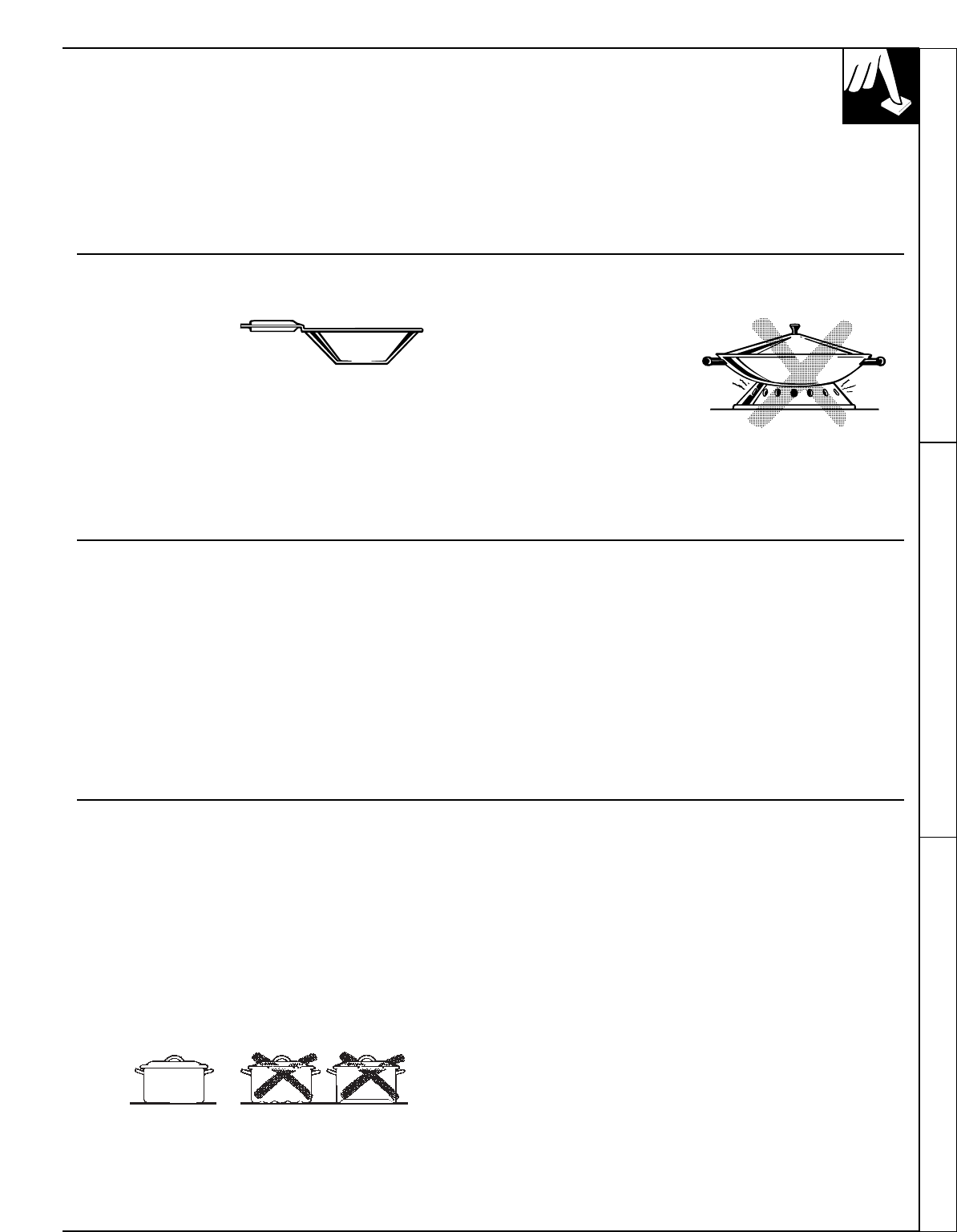
Deep Fat Frying
Do not overfill cookware with fat that may spill over when adding food.
Frosty foods bubble vigorously. Watch food frying at high temperatures.
Keep range and hood clean from grease.
Wok Cooking
We recommend that
you use only a flat-
bottomed wok. They
are available at your
local retail store.
Do not use woks that
have support rings.
Use of these types of
woks, with or without
the ring in place, can
be dangerous. Placing
the ring over the
surface unit will cause a build-up of heat that will
damage the porcelain cooktop. Do not try to use such
woks without the ring. You could be seriously burned
if the wok tipped over.
HOME CANNING TIPS
Canning should be done on cooktop only.
Pots that extend beyond 1 inch of surface unit’s edge
are not recommended for most surface cooking.
However, when canning with water-bath or pressure
canner, large-diameter pots may be used. This is
because boiling water temperatures (even under
pressure) are not harmful to cooktop surfaces
surrounding surface unit.
HOWEVER, DO NOT USE LARGE DIAMETER
CANNERS OR OTHER LARGE DIAMETER
COOKWARE FOR FRYING OR BOILING FOODS
OTHER THAN WATER. Most syrup or sauce
mixtures—and all types of frying—cook at
temperatures much higher than boiling water. Such
temperatures could eventually harm cooktop surfaces.
Observe Following Points in Canning
1. Be sure canner fits over center of surface unit.
If your cooktop or its location do not allow canner
to be centered on the surface unit, use smaller-
diameter pots for good canning results.
2. Flat-bottomed canners must be used. Do not use
canners with flanged or rippled bottoms (often
found in enamelware) because they don’t make
enough contact with the surface unit and take too
long to boil water.
RIGHT WRONG
Flat bottomed canners are recommended.
3. When canning, use recipes and procedures from
reputable sources. Reliable recipes and procedures
are available from the manufacturer of your canner;
manufacturers of glass jars for canning, such as
Ball and Kerr; and the United States Department
of Agriculture Extension Service.
4. Remember that canning is a process that generates
large amounts of steam. To avoid burns from steam
or heat, be careful when canning.
NOTE: If your house has low voltage, canning may
take longer than expected, even though directions
have been carefully followed. The process time will
be shortened by:
(1) using a pressure canner, and
(2) starting with HOT tap water for fastest heating
of large quantities of water.
7
Controls Cookware Tips Home Canning Tips



